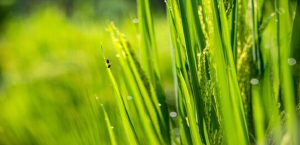Abstract:
Biodiversity is well known to enhance plant productivity, but whether it likewise augments soil carbon (C), nitrogen (N) and phosphorus (P) pool has remained unclear. We integrated evidence from a global meta-analysis of mixed-species versus monoculture stands and long-term data from Canada’s National Forest Inventory to test how plant, especially tree, diversity influences soil organic C (SOC), N and P cycling and storage. Based on global meta-analysis from diversity- manipulation experiments, we found that (1) SOC, soil total N and P are, on average, higher in species mixtures than in monocultures; (2) the mixture effects on net N mineralization rate and availablie N shift from negative in young stands to positive in older stands with greater positive effects in more-diverse mixtures; (3) the mixture effects on soil-available P in the bulk soil do not change, but with increasing species richness these effects in the rhizosphere soil shift from positive to negative. The Canada’s National Forest Inventory show that tree diversity significantly increases soil C and N accumulation over decadal scales. And these diversity-driven gains in soil C and N were especially pronounced in resource-rich environments. Together, these findings fill a key gap in biodiversity–ecosystem function theory by demonstrating that biodiversity promotes long-term accrual of soil organic C and nutrients. Conserving diverse forests could thus help boost natural C sequestration and nutrient retention, providing co-benefits for climate change mitigation and the sustainable fertility of soils.
Speaker: Prof. Xinli Chen
Affiliation: Zhejiang Agriculture and Forestry University
Time: 4:30 PM, Tuesday, Apr. 29, 2025
Venue: Offline: The Conference Hall in Xishuangbanna Headquarter
Online: Tencent Meeting ID:989 441 993



